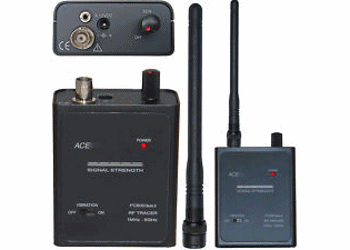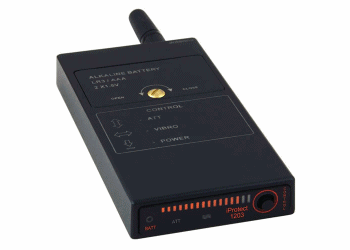GPS Bug Detector Miami Beach Coral Gables.

GPS Bug Detector Miami Beach Coral Gables
GPS Bug Detector Miami Beach Coral Gables. Nowadays there are plenty of shops where you can find electronic devices such as cassette recorders, GPS bug detector, but if you are looking for the spy gadgets the market has to offer come and visit us in Spy World, we are located in Miami Beach Coral Gables, Florida.
The Science of GPS Technology. GPS Bug Detector Miami Beach Coral Gables.
The Department of Defense first launched a Global Positioning Systems (GPS) satellite in 1978 and achieved a full constellation of 24 satellites in 1994, which the U.S. government has named Navstar. GPS Bug Detector Miami Beach Coral Gables. Today, GPS is used for both civil and military purposes and is controlled by a joint civilian/military executive board of the U.S. government. The system is maintained by the U.S. Air Force on behalf of all users.
GPS relies on three components: a constellation of satellites (currently 27) orbiting about 20,000 km (11,500 miles) above the earth’s surface which transmit ranging signals on two frequencies in the microwave part of the radio spectrum, a control segment which maintains GPS through a system of ground monitor stations and satellite upload facilities, and user receivers (civil and military). GPS Bug Detector Miami Beach Coral Gables. In simple terms, the GPS satellites transmit signals to the equipment on the ground.
More specifically, the signals contain a pseudorandom code that identifies which satellite is transmitting the information, ephemeris data that contains information about the status of the satellite and the current date and time, and almanac data that tells the receiver where each satellite should be at any time throughout the day. GPS Bug Detector Miami Beach Coral Gables. The receivers use this data to determine how long it takes the signals to travel from the satellite to the receiver.

GPS Bug Detector Miami Beach Coral Gables
The receiver then uses the speed of light (about 300,000 km per second and about the same speed at which radio waves travel) to calculate the satellite’s’ location. GPS Bug Detector Miami Beach Coral Gables. By using the exact locations of four or more satellites, the receiver can determine its own latitude, longitude, and height. This process of determining a position from measurements of distances is known as trilateration (as opposed to triangulation, which is based on the measurement of angles). GPS Bug Detector Miami Beach Coral Gables.
GPS Bug Detector Miami Beach Coral Gables. When GPS was first created, the U.S. government inserted timing errors into GPS transmissions to limit the accuracy of nonmilitary GPS receivers to about 100 meters. This was known as Selective Availability and was eliminated in May of 2000. GPS Bug Detector Miami Beach Coral Gables. Today, the accuracy of a position determined with GPS depends on the type of receiver, but most handheld GPS units have about a 10 to 20-meter accuracy. If an additional receiver fixed at a nearby location is used, it is possible to obtain much higher accuracy through a method called Differential GPS (DGPS). Furthermore, GPS is not affected by any weather conditions.
There are many bug detectors that are effective at finding spy bugs and other invasive equipment. Most present day devices can be detected with fairly inexpensive equipment. It is very important to understand how these bug detectors work in order to choose one that will detect any likely bugs that you may encounter. Once you understand the general principles of how the bug detector work, you can choose a bug detector that has the options that you will require to find any bugs you may be likely to encounter.
There are several types of models you can choose from when selecting a spy bug detector. Be wary of models that claim to be an all-in-one device because there is a good chance that some of the functions are inoperable or very ineffective at best. The best type of model to look for is one that has an audio reading, a visual display and has a method to change the frequency that is being searched for. GPS Bug Detector Miami Beach Coral Gables. You will also want to purchase a unit that has an external sweep unit to make it easier to search harder-to-reach areas.
GPS Bug detectors can be used to locate several types of spy equipment. They can be used to detect microphone bugs, wiretaps, video cameras, GPS trackers and laser microphones.
Radio frequencies are given off by nearly all spying devices, and these radio frequencies can be detected with the proper anti-bug equipment. The most important factor to take into account when choosing a bug detector is finding equipment that repeatedly locates several types of spy devices. Different types of spy bugs give off a large range of frequencies and it is important for your bug detector to be able to locate as many devices as possible. The larger the range of frequencies detectable, the more likely your detector will locate hidden spy bugs. It is important to find a model that has a good display of the frequency that is being read and the strength that it is reading at.
A GPS device is not only used for tracking and navigating. It can also be used to spy on someone. GPS Bug Detector Miami Beach Coral Gables. GPS devices are usually small and can be hidden just anywhere on the subject. If you suspect that someone has placed a GPS tracking device on your car or other belongings there are some countermeasures you can take like getting a GPS signal detector.
Detecting the presence of GPS tracking devices often requires the assistance of a mechanic or you should spend some money buying signal detectors. While not all GPS tracking devices are attached to the vehicle within mechanical parts, if you have recently purchased a used car and wish to find an unwanted GPS tracking device, you should use a radio frequency (RF) detector and have the assistance of a mechanic for visual inspection of the vehicle’s engine and the electrical and mechanical systems.
GPS Technology’s Rising Popularity. GPS Bug Detector Miami Beach Coral Gables.
The increasing affordability, availability, and popularity of GPS technology nowadays cannot be overstated. GPS Bug Detector Miami Beach Coral Gables. With all cell phone companies now being required to offer GPS capabilities, for only a few dollars per month per user, a business can have access to an entire GPS application. GPS Bug Detector Miami Beach Coral Gables. Furthermore, it is estimated that by 2006, four out of every five new vehicles will be equipped with GPS. 15 Worldwide GPS sales increased from $3.9 billion in 2002 to $4.7 billion in 2003, and it is projected that nonmilitary sales could be up to $10.8 billion by 2008. GPS Bug Detector Miami Beach Coral Gables.
Contributing to this growth in sales is the increase in the amount of employers who use GPS to track their employees. GPS Bug Detector Miami Beach Coral Gables. The tracking of employees’ location information is a steadily growing practice among businesses, both big and small. “Once a pricey tool for big-budget mobile fleets, global positioning system (GPS) technology is quickly becoming an affordable option for small businesses, such as Protec Dental Laboratories Ltd,” a company with only eight drivers.
Affordability is not the only reason why GPS sales have gone up. Employers are finding a variety of reasons to use GPS technology in the workplace. GPS Bug Detector Miami Beach Coral Gables. Reasons employers give for implementing GPS tracking include lowering fuel costs for company vehicles, increasing employee efficiency by saving time through real-time re-routing, and increasing productivity by increasing billable hours. GPS Bug Detector Miami Beach Coral Gables.
Indeed, GPS and other location-tracking devices have popped up in every imaginable work environment. A November 2003 survey by Lawn & Landscape magazine found that 53.4 percent of the companies surveyed responded that they either use GPS to track all of their vehicles, use GPS to track some of their vehicles, or were considering using GPS in the future. 76 percent of county surveyors operated GPS equipment in 2002. GPS Bug Detector Miami Beach Coral Gables. In 2003, a whopping 97 percent of local governments with populations of at least 100,000, 88 percent of those with 50,000 to 100,000 people, and 56 percent of smaller governments, jurisdictions with fewer than 50,000 people, utilized some form of geographic information system technology, including for uses such as viewing aerial photography, supporting property record management and taxation services; providing public access information; permitting services and emergency preparedness and response activities; capital planning, design, and construction; computer-aided response activities; and crime tracking and investigative activities. GPS Bug Detector Miami Beach Coral Gables.
A different type of location tracking, nurse badges that rely on infrared light, is already installed in at least 137 healthcare facilities throughout the U.S. This is but a mere sampling of the growing prevalence of GPS technology in the workplace. Although there are many positive and legitimate uses for GPS equipment, employees must be aware of the possible invasions of privacy that come with the technology. GPS Bug Detector Miami Beach Coral Gables. After all, whether it be through GPS or some other form of technology, real-time location tracking of employees will continue to grow both in terms of the numbers of employees that are tracked and the types of companies that feel the need to track in the next few years.
The Status of Laws Affecting Use of GPS Technology. GPS Bug Detector Miami Beach Coral Gables.
In 1996, the FCC enacted rules requiring that wireless carriers set up GPS technology to provide Automatic Location Identification (ALI). GPS Bug Detector Miami Beach Coral Gables. For Phase I, carriers had to be able to report the telephone number of the wireless 911 callers to a local Public Safety Answering Point (PSAP) and pinpoint the location of someone calling 911 to the nearest cell tower by April 1, 1998.
Cell towers can cover up to ten square miles, so this was a first step in narrowing down the possible location of a call’s origin. By October 1, 2001, carriers needed to be able to locate callers within 125 meters at least 67% of the time. GPS Bug Detector Miami Beach Coral Gables. This was known as the E-911 Phase II standard and could be met through network-based solutions or GPS-enabled handset solutions. On September 15, 1999, the FCC amended its rules, requiring that wireless carriers declare a choice of network-based solutions or GPS-enabled handset solutions by October 1, 2000. GPS Bug Detector Miami Beach Coral Gables. For those carriers that chose to use GPS-enabled handset solutions, accuracy had to be tightened to within 50 meters 67% of the time and 150 meters 95% of the time.
The mandate included a four-year rollout schedule for Phase II, requiring that the first phones equipped with Phase II capabilities appear on October 1, 2001 and that nearly all cell phones comply by December 31, 2005. GPS Bug Detector Miami Beach Coral Gables.
The enabling legislation for the E911 Initiative was the Wireless Communications and Public Safety Act of 1999 (the 911 Act). Representatives Roy Blunt and Pat Danner of Missouri pushed for the legislation in order to establish 911 as the nationwide telephone number for emergency assistance. GPS Bug Detector Miami Beach Coral Gables. Senator John McCain of Arizona and Senator Conrad Burns of Montana introduced the bill that would become the 911 Act on April 14, 1999. The House approved the Senate’s version of the Act by a vote of 424-2, and Clinton signed it into law on October 26, 1999. GPS Bug Detector Miami Beach Coral Gables. The law designated 911 as the universal emergency telephone number within the United States and provided wireless providers and users of 911 emergency services with the same level of immunity previously provided to wireline providers and users. Also, in response to the fear that the new technology would be misused, the new law amended section 222 of the Communications Act of 1934 on privacy of consumer information and stated, “Without the express prior authorization of the customer, a customer shall not be considered to have approved the use or disclosure of or access to call location information concerning the user of a commercial mobile service.
Not completely satisfied with the language of the 911 Act, Senator John Edwards of North Carolina introduced the Location Privacy Protection Act of 2001. GPS Bug Detector Miami Beach Coral Gables. It was referred to the Committee on Commerce, Science, and Transportation, but no action was taken on the bill in the 107th Congress. After September 11th, the bill was not reintroduced in the 108th Congress. GPS Bug Detector Miami Beach Coral Gables. The Location Privacy Act would have called for all providers of location-based services to give customers clear and conspicuous notice about proposed uses of their personal location data, consumers to give express authorization before their data could be used, and third parties to be restricted from disclosing location information without prior authorization. Unfortunately, this law would have applied only to consumers and not to employees, the goal being to prevent unsolicited e-coupons from being sent to the unsuspecting yet potential customer walking by a retailer. GPS Bug Detector Miami Beach Coral Gables.
Ways Employers Use GPS Technology to Track Their Employees. GPS Bug Detector Miami Beach Coral Gables.
Cell Phones
As mentioned earlier, a 1999 federal law required all cell phones to use Global Positioning Systems (GPS) by late 2005 to help emergency crews respond to 911 calls. GPS Bug Detector Miami Beach Coral Gables. However, GPS-equipped cell phones are now being used for a variety of purposes, from worried parents tracking the whereabouts of their children to suspicious employers monitoring the location of their workers. No federal law protects employees when their employers use this or any other type of location awareness technology. GPS Bug Detector Miami Beach Coral Gables. This section will summarize sample incidents of employers tracking employees with GPS-equipped cell phones.
In Massachusetts, snowplow drivers demonstrated in Boston against a state order to carry $90 GPS-enabled cell phones by sending the phones back. GPS Bug Detector Miami Beach Coral Gables. The Massachusetts highway department claimed the GPS technology would be used to determine whether the employees were driving at the optimal speed for laying down salt. GPS Bug Detector Miami Beach Coral Gables. In December of 2003, the drivers agreed to carry the cell phones after the Massachusetts highway department agreed not to use the equipment to squeeze hourly payments, as they are unsalaried independent contractors.
One of the earliest examples of how an employer can walk this fine line is in Chicago, where about 500 city employees now carry geo-tracking phones, mainly as a tool to increase their productivity. GPS Bug Detector Miami Beach Coral Gables. The phones were distributed to employees only after their unions won several concessions, including allowing workers to shut down geo-tracking features during lunchtime and after hours.
Another troubling method of GPS-enabled cell phone use for tracking employees is when the employer does not inform the employees that they are being tracked. GPS Bug Detector Miami Beach Coral Gables. Howard Boyle, president of a fire sprinkler installation company in Woodside, New York, gave company phones to his five employees without informing them about the GPS feature. Legislation introduced by Senator Schumer (the Notice of Electronic Monitoring Act) in the 106th Congress would have required employers to give notice of electronic monitoring practices, but it has not been reintroduced. While several states have introduced bills on this issue, only the state of Connecticut requires employers to give such notice. GPS Bug Detector Miami Beach Coral Gables.
Studies estimate that as many as 42 million Americans will be using some form of “location aware” technology in 2005. GPS Bug Detector Miami Beach Coral Gables. While there are many positive uses for GPS devices, privacy interests must also be taken into account. Daniel Sovocool, a partner at Thelen Reid & Priest LLP says, “I regularly get emails from employees concerned about their employers tracking their whereabouts after hours with company cars or GPS cell phones.” GPS Bug Detector Miami Beach Coral Gables. He advises workers to turn off the location tracker after hours, but in some cases, even when the devices appear to be turned off, they still emit detectable signals. Indeed, the Northern California office of the ACLU recently received a complaint regarding a saleswoman whose employer was attempting to use a GPS-equipped cell phone for 24-hour tracking purposes.
Vehicles. GPS Bug Detector Miami Beach Coral Gables.
An example of a public employer that utilizes vehicle-equipped GPS tracking for employees is the city of Oakland. Initiated because of gripes from residents about unsatisfactory street sweeping, the Oakland program equips every street sweeping vehicle with a GPS tracking system. GPS Bug Detector Miami Beach Coral Gables. Road crews are also monitored so that the city knows how long it takes to fill a pothole. The city argues that the people have a right to know where its public servants are, but the employees counter with Big Brother comparisons.
“Oakland is just one of a number of cities across the country using GPS technology to improve worker accountability.” GPS Bug Detector Miami Beach Coral Gables. For example, law enforcement in Clinton Township, New Jersey, installed a GPS tracking device behind the front grilles of several patrol cars in 2001, without notifying the officers. A sergeant was then able to catch five officers loitering over meals or hanging out in parking lots when they had indicated in their logbooks that they were patrolling the streets or watching for highway speeders. In King County, Washington, the municipal government is installing GPS receivers on tractors and trailers that haul solid waste between landfills and transfer stations in the name of improved efficiency. GPS Bug Detector Miami Beach Coral Gables. In Canton Township and other parts of Wayne County, Michigan, salt truck and pothole crews are operating vehicles that are equipped with Palm Pilot-sized dashboard sensors that indicate the location of the vehicle, the speed of the vehicle, and even whether a snowplow is in the down or up position. School buses in Marion County, Indiana, are now GPS-equipped. GPS Bug Detector Miami Beach Coral Gables. In yet another street sweeper case, the city of Chula Vista, California, equipped its street sweeping vehicles with GPS. The cities of Charleston, South Carolina, and Aurora, Colorado, also use GPS equipment to track garbage trucks and street sweepers and found that workers became more efficient even though the GPS was not installed specifically for employee monitoring. GPS Bug Detector Miami Beach Coral Gables. The mere knowledge that employers could potentially be watching them was enough to cause these workers to be wary.
Privacy concerns obviously arise naturally when vehicles are being monitored, but they become even greater when employers use the technology for anything other than its stated purpose. GPS Bug Detector Miami Beach Coral Gables. At Washington’s WJLA-TV, management installed tracking devices in station-owned vehicles ostensibly to allow editors to know where vehicles are for news-gathering purposes so that the closest crew can be dispatched, but employees claimed that the devices had been used to monitor them. Employees recounted stories of managers phoning them to instruct them to drive slower or to question them about stopping at certain locations. GPS Bug Detector Miami Beach Coral Gables. To prevent this type of circumstance, the Teamsters have reached a contract with United Parcel Service allowing UPS to use GPS tracking to keep tabs on shipments but prohibiting the use of data from GPS tracking for discipline purposes. 62 The Teamsters argued that detours taken to avoid traffic jams or slick roads would otherwise be subject to supervisors’ criticisms. GPS Bug Detector Miami Beach Coral Gables. This is nowhere near the end for GPS use at UPS, though. In the future, UPS may also include GPS capabilities on delivery scanners, the electronic tablets that store delivery data, in order to improve customer service by being able to quickly reroute packages in transit.
Badges. GPS Bug Detector Miami Beach Coral Gables.
Tags and badges that carry a unique code are now being used to track nurses and their equipment. GPS Bug Detector Miami Beach Coral Gables. The badges are slightly smaller than credit cards and are clipped onto collars, belts, or identification cards. Instead of GPS technology, infrared light from the $250 battery-powered badges is detected by sensors or receivers that are surrounded by electromagnetic fields and installed throughout the hospital or nursing home. The system provides real-time information about the location of the nurse or equipment, and supervisors can receive printouts on the location of any of their staff at any time. GPS Bug Detector Miami Beach Coral Gables. One company, Wescom Products, Inc., offers a technology called Intelligent Locator System that provides a history showing the last five places a person or piece of equipment was located, can group badges into as many as 32 different categories, displays the time personnel entered a location, and gives the extension for a phone in the area.
[email protected] / [email protected]
Spy Store Miami & Spy Shop Miami
Miami Beach • Miami Gardens • Aventura • Coral Gables • Doral • Hialeah • Hialeah Gardens • Homestead • Kendall • Key Biscayne • Miami • Miami Lakes • North Miami • North Miami Beach • Opa-Locka • Palmetto Bay • Pinecrest • Pinecrest / Monroe Couty • South Miami • Miami Beach




